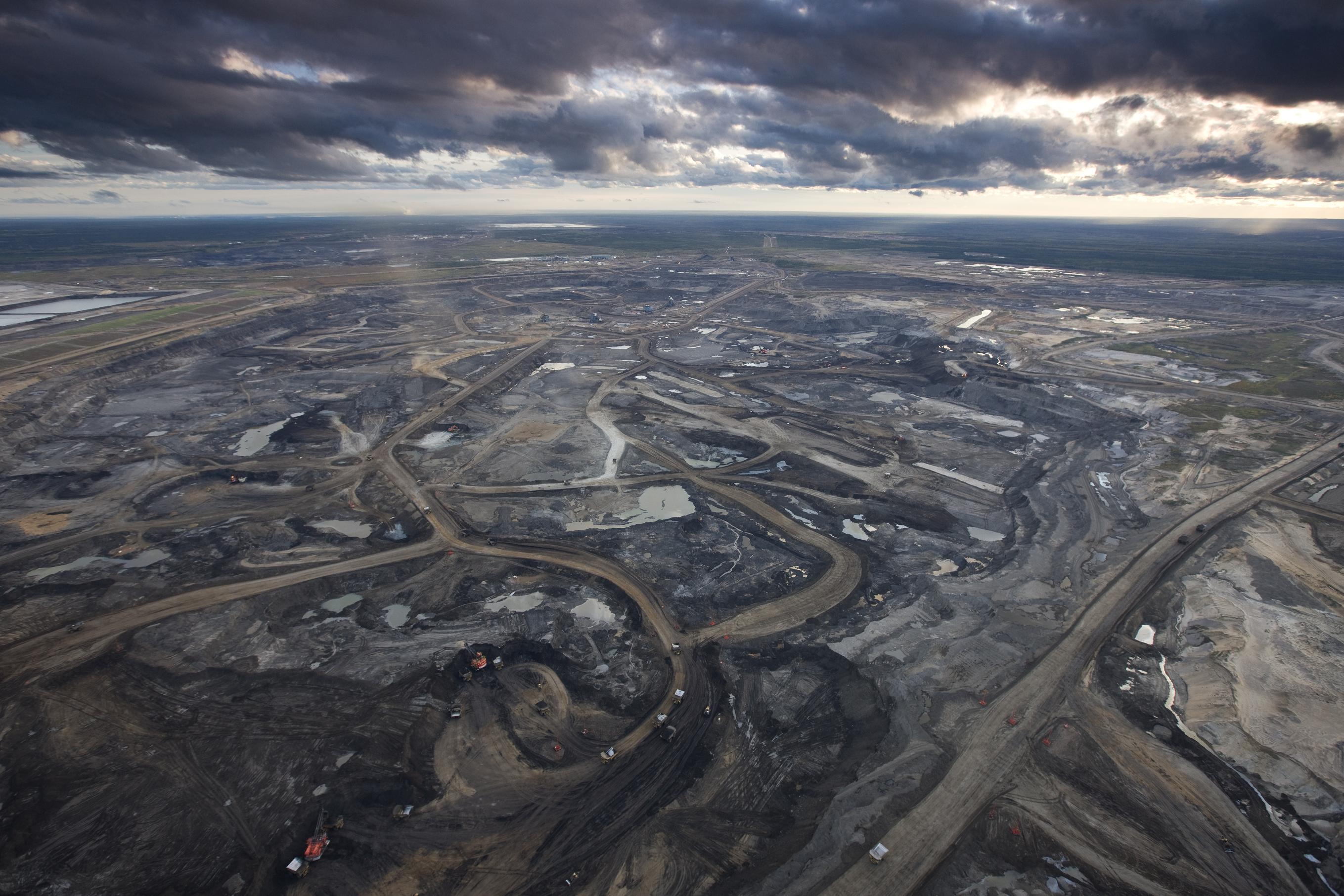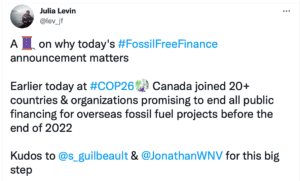Last week, the federal government showed some much-needed climate leadership at COP26, the United Nations Climate Change Conference in Glasgow. Joining an ever growing list of countries from around the world, Canada pledged to end public financing for overseas fossil-fuel projects in 2022 and instead prioritize the clean energy transition.
This is a big deal. Here’s why:
- This commitment will likely unseat Canada as the worst-ranking G20 nation for international public financing to the fossil fuel sector.
- Despite many commitments around the world to end coal financing, this is the first joint pledge focusing on oil and gas. Countries are finally acknowledging that public financing of oil and gas is a major climate risk. This sends an important signal to investors and people around the world that the sun is setting on fossil fuels.
- A large number of the signatory countries are developing nations. This challenges the narrative being pushed by the oil and gas sector that developing countries want or need investments in fossil fuels.
- Lastly, signatory countries, including Canada, are acknowledging the need to significantly decrease global production and use of fossil fuels by 2030 to keep 1.5 degrees within reach. Although we’ve known this for a while, Canadian politicians don’t always like to admit this reality.
Eliminating public financing for fossil fuels will free up billions of dollars to support climate solutions abroad and put the world on a path to a genuinely healthier, more resilient and more equitable future.
This announcement will have a tangible impact – of over $20 billion
If fully implemented, it could mean a shift of over $20 billion collectively out of fossil fuels and into clean energy – and the funds will continue to grow as more nations sign the pledge.
Almost all of Canada’s public finance for oil and gas comes from Export Development Canada (EDC) – a crown corporation. EDC provides public financing both for companies and projects in Canada as well as abroad. International public financing goes to Canadian companies involved in projects abroad (including fracking in Colombia) as well as international companies doing business with Canadian entities — including Enbridge, Parex Resources, ConocoPhillips, and Australia Pacific LNG, which are among the top recipients.
We know that EDC provides an average of $13.6 billion per year to oil and gas companies. Unfortunately, a lack of transparency means it’s not fully possible to separate domestic and international financial support, so it’s still not clear what portion of EDC’s financing will be covered by this commitment. Our best estimate is that on average over recent years, EDC has provided somewhere between $2 billion to $9 billion per year to overseas oil and gas projects.
Yes – there are caveats and loopholes
Much of the public financing provided by Export Development Canada is actually for domestic oil and gas projects and therefore not clearly covered in this commitment. This commitment also doesn’t cover domestic fossil fuel subsidies. (Confused about the difference? Check out our FAQ.)
There’s also a loophole in the text which could allow countries to support projects equipped with carbon capture technology. But carbon capture is far from proven, it remains prohibitively expensive, and doesn’t actually effectively reduce emissions. There’s a danger that countries might exploit that loophole to keep pumping public dollars into false solutions that will only serve to prolong our dependence on fossil fuels (read more about false solutions here).
Still, this is our win
If we take away one thing from this announcement, let it be this: advocacy works. This victory is a credit to you – and all the individuals, communities, and Indigenous peoples engaged in the climate movement who have been advocating for this for a long time.
But we can’t lose momentum now
In joining this commitment, Minister Guilbeault commented that it is rightfully difficult for people to take Canada seriously on our climate commitments when our institutions are still funding fossil-fuels abroad. But the same is true for domestic financing – especially since Canada’s support to oil and gas – which tallied at least $18 billion in 2020 – is mostly for projects here at home.
To fully align with the 1.5°C global energy transition, Canada will need to go further. This announcement deals with overseas public finance only. We need to expand this phase-out to include domestic public financing & subsidies – on the same timeline!
Take action today and tell the federal government to stop using our tax dollars to finance pollution, environmental destruction, and injustice.









